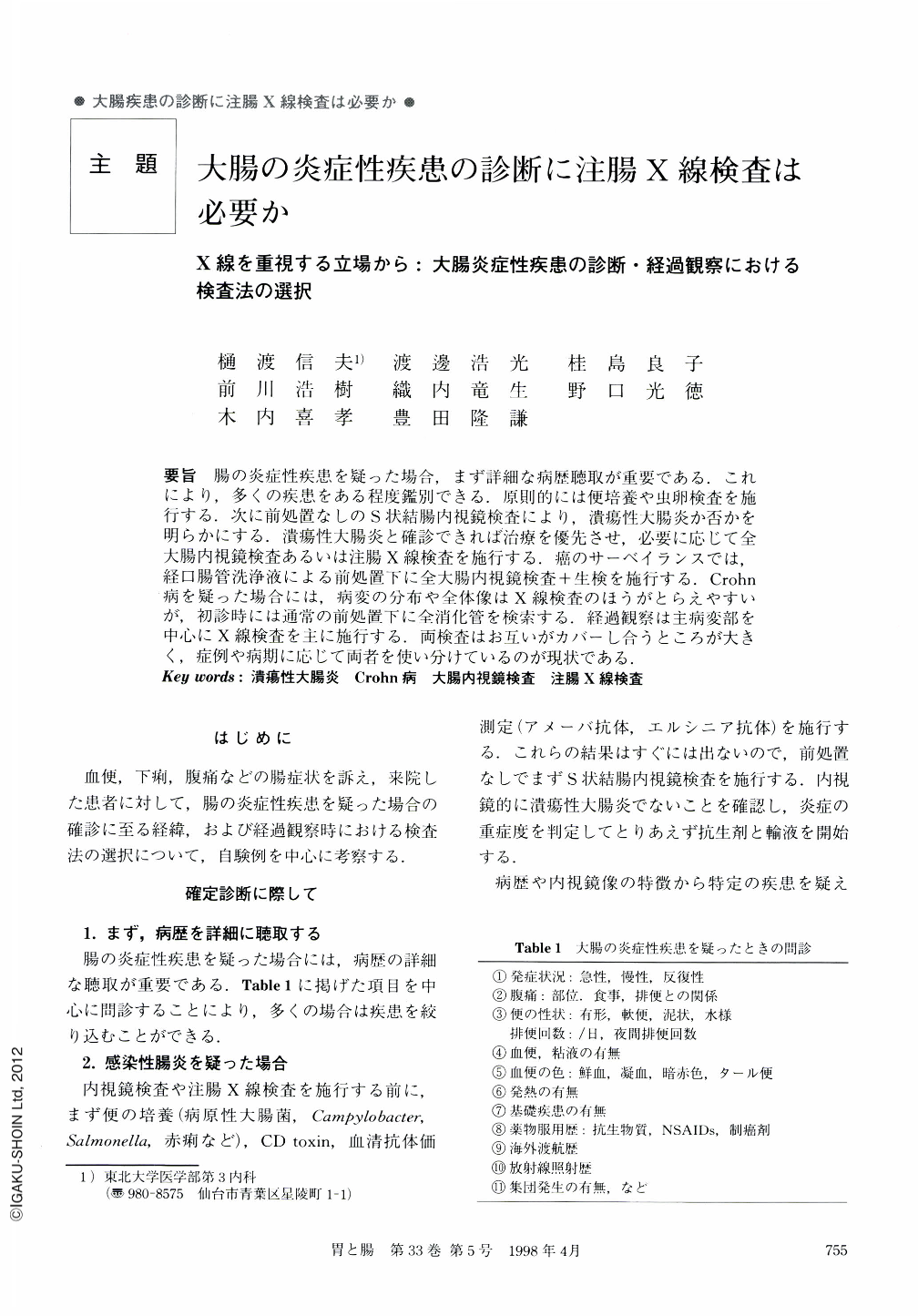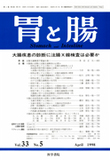Japanese
English
- 有料閲覧
- Abstract 文献概要
- 1ページ目 Look Inside
- サイト内被引用 Cited by
要旨 腸の炎症性疾患を疑った場合,まず詳細な病歴聴取が重要である.これにより,多くの疾患をある程度鑑別できる.原則的には便培養や虫卵検査を施行する.次に前処置なしのS状結腸内視鏡検査により,潰瘍性大腸炎か否かを明らかにする.潰瘍性大腸炎と確診できれば治療を優先させ,必要に応じて全大腸内視鏡検査あるいは注腸X線検査を施行する.癌のサーベイランスでは,経口腸管洗浄液による前処置下に全大腸内視鏡検査+生検を施行する.Crohn病を疑った場合には,病変の分布や全体像はX線検査のほうがとらえやすいが,初診時には通常の前処置下に全消化管を検索する.経過観察は主病変部を中心にX線検査を主に施行する.両検査はお互いがカバーし合うところが大きく,症例や病期に応じて両者を使い分けているのが現状である.
When inflammatory colonic diseases are suspected, it is important to listen first to the detailed history of symptoms. We can differentiate many diseases by merely hearing the symptoms. Also, as a rule, stool culture should be examined. Next, sigmoid colonoscopy without preparation should be carried out in order to clarify whether the patient has ulcerative colitis or not. When it is a definite case of ulcerative colitis, treatment precedes investigation of extension of the lesion. If it is necessary to observe the extension or severity of the proximal colon, total colonoscopy or barium enema should be used. Surveillance colonoscopy should be performed under oral lavage preparation. When Crohn's disease is suspected, radiography can easily reveal the overall condition and the localization of the lesions. However, at the first visit, the whole alimentary tract should be examined endoscopically and radiographically. These examinations complement each other, so we usually use both examinations according to the activity or the stage of development of the inflammatory colonic disease.

Copyright © 1998, Igaku-Shoin Ltd. All rights reserved.


